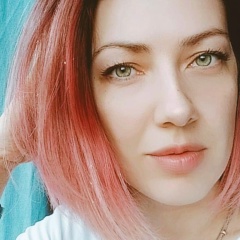Однажды, когда я, прогуливаясь по полю, увидал вяз и виноградное дерево и размышлял о плодах их - пастырь явился мне и спросил:
- Что ты думаешь об этом виноградном дереве и вязе?
- Думаю, что они пригодны друг для друга. И сказал он мне:
- Эти два дерева являют рабам Божиим глубокий смысл.
- Желал бы я познать, господин, этот смысл.
- Смотрите же, - сказал он, - это виноградное дерево имеет плод, а вяз - дерево бесплодное; но виноградное дерево не может приносить обильных плодов, если не будет опираться на вяз. Ибо, лежа на земле, оно дает гнилой плод; но если виноградная лоза будет висеть на вязе, то дает плод и за себя, и за вяз. Итак, видишь, что вяз дает плод не меньший, а гораздо больший, нежели виноградная лоза, потому что виноградная лоза, поддерживаемая вязом, дает плод и обильный и хороший, но, лежа на земле, дает плод плохой и малый. Этот пример служит притчею рабов Божиих, для бедного и богатого.
- Каким образом, объясни мне.
- Слушай, - говорит он, - богатый имеет много сокровищ, но беден перед Господом. Занятый своими богатствами, он очень мало молится Господу и если имеет какую молитву, то скудную и не имеющую силы. Но когда богатый подает бедному то, в чем он нуждается, тогда бедный молит Господа за богатого, и Бог подает богатому все блага, потому что бедный богат в молитве и молитва его имеет великую силу пред Господом. Богатый подает бедному, веруя, что ему внимает Господь, и охотно и без сомнения подает ему все, заботясь, чтобы у него не было в чем-нибудь недостатка. Бедный благодарит Бога за богатого, дающего ему. Так люди, думая, что вяз не дает плода, не понимают того, что во время засухи вяз, имея в себе влагу, питает виноградную лозу, и виноградная лоза благодаря этому дает двойной плод - и за себя, и за вяз. Так и бедные, моля Господа за богатых, бывают услышаны и умножают богатства их, а богатые, помогая бедным, ободряют их души. Те и другие участвуют в добром деле. Итак, кто поступает таким образом, не будет оставлен Господом, но будет вписан в "Книгу жизни". Блаженны те, которые, имея богатство, сознают, что они обогащаются от Господа, ибо кто почувствует это, тот может совершать добро.
"Пастырь Гермы", подобие 2-е
- Что ты думаешь об этом виноградном дереве и вязе?
- Думаю, что они пригодны друг для друга. И сказал он мне:
- Эти два дерева являют рабам Божиим глубокий смысл.
- Желал бы я познать, господин, этот смысл.
- Смотрите же, - сказал он, - это виноградное дерево имеет плод, а вяз - дерево бесплодное; но виноградное дерево не может приносить обильных плодов, если не будет опираться на вяз. Ибо, лежа на земле, оно дает гнилой плод; но если виноградная лоза будет висеть на вязе, то дает плод и за себя, и за вяз. Итак, видишь, что вяз дает плод не меньший, а гораздо больший, нежели виноградная лоза, потому что виноградная лоза, поддерживаемая вязом, дает плод и обильный и хороший, но, лежа на земле, дает плод плохой и малый. Этот пример служит притчею рабов Божиих, для бедного и богатого.
- Каким образом, объясни мне.
- Слушай, - говорит он, - богатый имеет много сокровищ, но беден перед Господом. Занятый своими богатствами, он очень мало молится Господу и если имеет какую молитву, то скудную и не имеющую силы. Но когда богатый подает бедному то, в чем он нуждается, тогда бедный молит Господа за богатого, и Бог подает богатому все блага, потому что бедный богат в молитве и молитва его имеет великую силу пред Господом. Богатый подает бедному, веруя, что ему внимает Господь, и охотно и без сомнения подает ему все, заботясь, чтобы у него не было в чем-нибудь недостатка. Бедный благодарит Бога за богатого, дающего ему. Так люди, думая, что вяз не дает плода, не понимают того, что во время засухи вяз, имея в себе влагу, питает виноградную лозу, и виноградная лоза благодаря этому дает двойной плод - и за себя, и за вяз. Так и бедные, моля Господа за богатых, бывают услышаны и умножают богатства их, а богатые, помогая бедным, ободряют их души. Те и другие участвуют в добром деле. Итак, кто поступает таким образом, не будет оставлен Господом, но будет вписан в "Книгу жизни". Блаженны те, которые, имея богатство, сознают, что они обогащаются от Господа, ибо кто почувствует это, тот может совершать добро.
"Пастырь Гермы", подобие 2-е
Once, when I was walking along the field, I saw an elm and a grape tree and thought about their fruits - a shepherd appeared to me and asked:
“What do you think of this grape tree and elm?”
- I think that they are suitable for each other. And he said to me:
- These two trees have a deep meaning for the servants of God.
“I would like to know, sir, this meaning.”
“Look,” he said, “this grape tree has fruit, and the elm tree is barren; but a grape tree cannot bear abundant fruit unless it rests on elm. For, lying on the ground, it gives a rotten fruit; but if the vine hangs on an elm, it gives fruit both for itself and for the elm. So, you see that the elm gives the fruit not less, but much larger than the vine, because the vine supported by the elm gives the fruit both plentiful and good, but lying on the ground gives the fruit poor and small. This example serves as the parable of God's servants, for the poor and the rich.
- How, explain to me.
“Listen,” he says, “the rich have many treasures, but are poor in front of the Lord.” Preoccupied with his wealth, he prays very little to the Lord, and if he has any prayer, then it is meager and lacking in strength. But when the rich gives the poor what he needs, then the poor pray to the Lord for the rich, and God gives the rich all the blessings, because the poor is rich in prayer and his prayer has great power before the Lord. The rich man serves the poor, believing that the Lord is listening to him, and willingly and without a doubt gives him everything, taking care that he does not have anything to lack. The poor thanks God for the rich, giving him. So people, thinking that the elm does not bear fruit, do not understand that during a drought the elm, having moisture in them, nourishes the vine, and because of this the vine gives a double fruit - both for itself and for the elm. So the poor, praying to the Lord for the rich, are heard and increase their wealth, and the rich, helping the poor, encourage their souls. Both participate in a good deed. So whoever does this will not be forsaken by the Lord, but will be inscribed in the "Book of Life." Blessed are those who, having wealth, realize that they are enriched by the Lord, for whoever senses this can do good.
"Shepherd of Germa", likeness 2
“What do you think of this grape tree and elm?”
- I think that they are suitable for each other. And he said to me:
- These two trees have a deep meaning for the servants of God.
“I would like to know, sir, this meaning.”
“Look,” he said, “this grape tree has fruit, and the elm tree is barren; but a grape tree cannot bear abundant fruit unless it rests on elm. For, lying on the ground, it gives a rotten fruit; but if the vine hangs on an elm, it gives fruit both for itself and for the elm. So, you see that the elm gives the fruit not less, but much larger than the vine, because the vine supported by the elm gives the fruit both plentiful and good, but lying on the ground gives the fruit poor and small. This example serves as the parable of God's servants, for the poor and the rich.
- How, explain to me.
“Listen,” he says, “the rich have many treasures, but are poor in front of the Lord.” Preoccupied with his wealth, he prays very little to the Lord, and if he has any prayer, then it is meager and lacking in strength. But when the rich gives the poor what he needs, then the poor pray to the Lord for the rich, and God gives the rich all the blessings, because the poor is rich in prayer and his prayer has great power before the Lord. The rich man serves the poor, believing that the Lord is listening to him, and willingly and without a doubt gives him everything, taking care that he does not have anything to lack. The poor thanks God for the rich, giving him. So people, thinking that the elm does not bear fruit, do not understand that during a drought the elm, having moisture in them, nourishes the vine, and because of this the vine gives a double fruit - both for itself and for the elm. So the poor, praying to the Lord for the rich, are heard and increase their wealth, and the rich, helping the poor, encourage their souls. Both participate in a good deed. So whoever does this will not be forsaken by the Lord, but will be inscribed in the "Book of Life." Blessed are those who, having wealth, realize that they are enriched by the Lord, for whoever senses this can do good.
"Shepherd of Germa", likeness 2
У записи 4 лайков,
1 репостов.
1 репостов.
Эту запись оставил(а) на своей стене Виктор Петров






















![Стас Однолетков -=[strast]=- Стас Однолетков -=[strast]=-](https://sun9-50.vkuserphoto.ru/s/v1/ig2/BQKIUfD3kthNCNNY9BS69xiPt_GjwVRhAU8D64L6gfeFjcmrTqYrLAC9NKgCppVxwhm79Mi5RypIHhjSHOhQK2uy.jpg?quality=95&crop=347,544,400,400&as=32x32,48x48,72x72,108x108,160x160,240x240,360x360&ava=1&cs=200x200)


